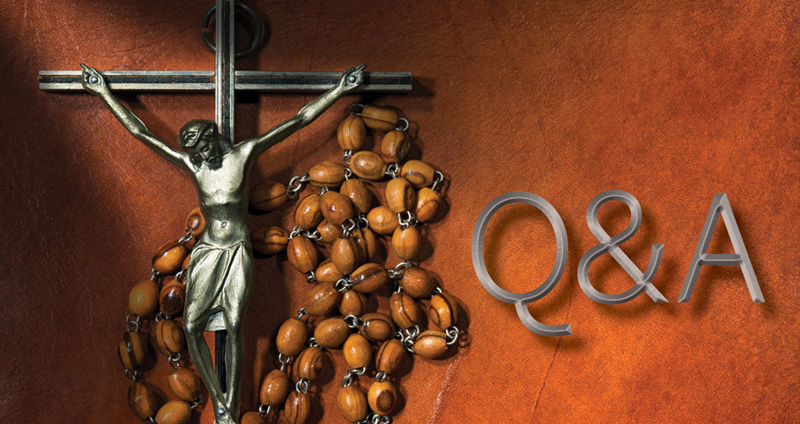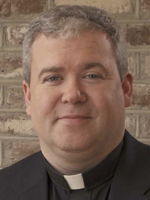
Q: As Catholics, we believe in the resurrection of the body, so why do we only pray for the “souls” of those who have died? (Aiken, SC)
A: This is a great question that highlights our creedal statement that we “believe in the resurrection of the body and life everlasting.” Let me explain: When we die, our souls go before God in what is called the particular judgment. This is when our individual souls are judged and we receive either the rewards of heaven or the punishment of hell. For those destined for heaven, some may have to be purified by the Lord before they enter Heaven. While in this purgation, we on earth are blessed to participate in this state of purification by the Lord Jesus. While this is happening, our bodies rest on this earth.
At the end of time, however, our bodies will rise. They will be glorified and still retain our personal identity. At that point, our glorified bodies will join our souls and the universal judgment will occur. This universal judgment is when the Lord Jesus presents his kingdom, whole and entire, to God the Father. This will be the end of time and space as we know it.
This is why we currently pray for the “souls” of our beloved dead. They will not be human persons again until they receive their glorified body since our human nature needs both a body and soul.
Q: Recently, I read that a priest is not required to say the name of the person for whom a Mass is offered. Why wouldn’t a priest want to say the name? Hearing a loved one’s name is a great consolation to people. (Mount Pleasant, SC)
A: The offering of Masses for our loved ones is a noble and ancient practice of the Christian believer. The heart of such an offering is the desire for the graces of the Mass to be applied to the person, living or dead.
The announcing of the person’s name could be an emotional consolation or encouragement. While this is important, it is not an essential part of the Mass offering. Because of this clarification, it is the decision of the presiding celebrant of the Mass to determine whether the intention of the Mass will be announced or not.
Admittedly, most priests will announce the name, while some others forget, and still others will purposely not mention the intention since it’s listed in the bulletin and he’s drawing attention to the spiritual reality of the offering. In either of the above situations, I would encourage you to understand what your priest is doing and why and give him your support.
Q: For many years after my divorce, I struggled with the annulment process. I didn’t think there was any reason to pursue this ridiculous teaching. Fast forward: I met the love of my life who encouraged me to pursue the process. And, it turned out to be a source of growth, closure, and healing. I wanted to share my story. (Camden, SC)
A: Thank you for this witness. As mentioned in a previous column, the annulment process is not an option for believers who have been divorced and hope to remarry. As with your experience, when the annulment process is approached with an open heart, it can be a source of closure and healing.
Father Jeffrey Kirby is administrator of Our Lady of Grace Church in Lancaster. Email him your questions at askfrkirby@gmail.com.


